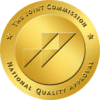The goal of a Partial Hospitalization Program (PHP) is to provide an intensive level of psychological and medical care similar to that found in inpatient programs, but with the flexibility for patients to return home at the end of the day. PHP is designed to stabilize individuals with substance use disorders through comprehensive treatment and support, facilitating their transition to less intensive levels of care. Key objectives include:
- Stabilizing the individual’s medical and psychiatric condition.
- Reducing substance use and addressing underlying issues contributing to addiction.
- Providing a structured treatment environment that supports recovery.
- Equipping individuals with coping strategies and skills for managing cravings, triggers, and daily stressors.
- Facilitating family involvement in the recovery process to strengthen support systems.





